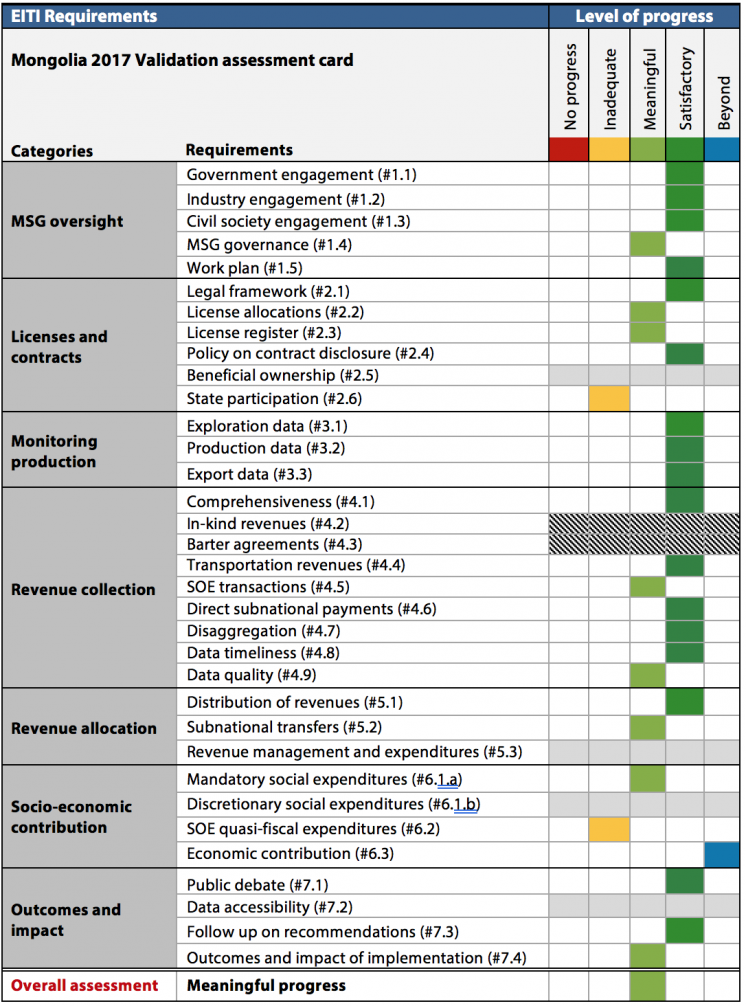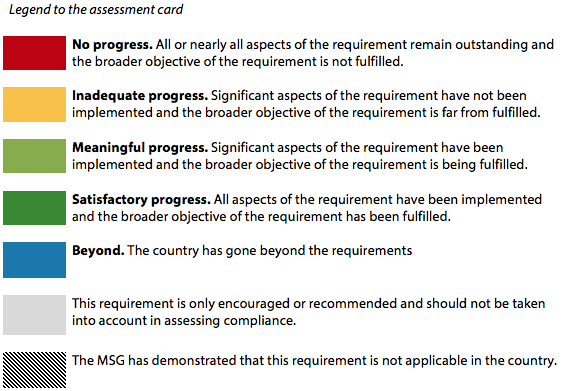
Mongolia: EITI Validation highlights governance impacts
Mongolia: EITI Validation highlights governance impacts
First Validation concludes meaningful progress, but more is needed.
Wednesday 11 January 2017 - Mongolia has made meaningful progress in implementing the EITI Standard. The international EITI Board reached this decision following the recently published EITI Validation report. Validation is the EITI’s independent evaluation mechanism.
As one of the first countries to implement the EITI and to expand public disclosures to include a large number of companies and socially significant payments to subnational governments and for environmental rehabilitation, Mongolia has long been considered a pioneer in EITI implementation. Through open days and increased activities at the district and province levels, including through EITI sub-councils, the EITI has contributed to public debate and increased transparency. Local residents now have access to more information on the extractive industries, including licenses active in their areas, while greater transparency in revenues and expenditures has contributed to a supportive environment for investment, created grounds for building trust with local communities and ensured a social license for extractives companies to operate.
The EITI Board agreed that Mongolia has made meaningful progress with implementing the EITI Standard, doing more than what the EITI requires in many areas including assessing the extractive industries’ contributions to the national economy.
Fredrik Reinfeldt, Chair of the EITI, said:
“Mongolia has made important progress in opening up the mining sector and I am encouraged to hear about the recent plans for government reforms towards more transparency. I hope that the government will continue its recent efforts to ensure that information on state-owned enterprises, social expenditures and license allocations is accessible to all Mongolians, particularly in host communities.”
Mongolia‘s first attempt at Validation shows that, although the Government of Mongolia has taken steps to address all requirements of the EITI Standard, there is still room for improvement in data quality assurance and comprehensiveness of reporting by both government and industry as well as state-owned enterprises. The EITI Board decided on a set of corrective actions that needs to be completed. including on state-owned enterprises. The full Board decision is available here. In accordance with the Board’s decision, Mongolia now has until 11 January 2018 to implement corrective actions addressing the EITI Board’s concerns, when a second Validation is scheduled to commence assessing progress with these corrective actions.


Notes
- The EITI is a coalition of governments, companies, civil society groups, investors and international organisations. Learn more at eiti.org.
- EITI is chaired by Fredrik Reinfeldt. Mr Reinfeldt was the Prime Minister of Sweden (2006-2014).
- 51 countries are members of the EITI. No country has yet made satisfactory progress with the 2016 EITI Standard. See the list of countries at www.eiti.org/countries.
- Validation is the EITI’s independent evaluation mechanism. It assesses countries against progress made in meeting the 2016 Standard.
- The Board decision in full, including corrective actions and impact of the EITI in the country, can be found here: eiti.org/validation/mongolia/2017
- The reports giving an extensive review of Mongolia's extractive sector can be found here: https://eiti.org/document/validation-mongolia-2017-documentation
- The Board has taken decisions on the status of three more countries on 11 January: Nigeria, Peru and Timor-Leste
- See here for a full explanation of the various levels of progress under the EITI Standard.
For further information about the EITI Mongolia, please visit the country page on the EITI website and the national EITI website.
Contenido relacionado





